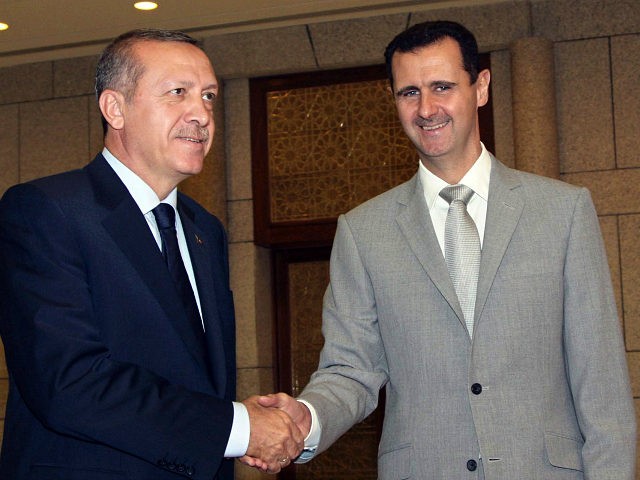Russia’s state-run Sputnik News ran a story on Monday that quoted Turkish “observers” warning President Recep Tayyip Erdogan that he will be forced to choose between Assad and the Kurds when the war against the Islamic State in Syria concludes.
The “observers” in question are a former Turkish intelligence official, a current legislator with Erdogan’s AKP party, and a representative of the National Council of Syrian Turkmen. The Turkmen are a sizable ethnic minority in Syria, supported by Turkey. The Turkmen played a role in the November 2015 Turkish downing of a Russian warplane on the Syrian border, an event which provoked a diplomatic crisis between Russia and Turkey that was only recently ameliorated.
The Turkmen were repressed by the Assad regime and joined the rebellion against him in 2011, but representative Abdurrahman Mustafa told Sputnik his group is now more concerned about the Kurds fragmenting Syria by forming an independent state.
“The US goal is to support cooperation with the Democratic Union Party (PYD) and the PKK, and to create a corridor under the PYD,” said Mustafa. “The US have been trying to divide Syria from the very beginning. This is an American project. We, Syrian Turkmen, are against this.”
The PKK is the violent separatist group Turkey has been fighting. As lawmaker Ahmet Berat Conkar stresses in the Sputnik piece, Turkey’s official position is that Kurdish militia units in Syria are terrorist allies of the PKK. The United States officially regards the Syrian Kurds as battlefield allies against the Islamic State, independent of the PKK.
Former Turkish General Staff intelligence chief Ismail Hakki Pekin also made the charge that America’s plan is to “turn Syria into a federation and include the Kurds in this federation.” On the other hand, the Russian state publication quoted him lauding their employer, the Russian Federation, for trying to keep Syria together and advised the Erdogan government to accept the Assad regime as the lesser of two evils compared to Kurdish autonomy.
“The main issue for Ankara is cooperation with Syria,” said Pekin. “If Turkey, having established contacts with the Syrian leadership, proves able to conduct a balanced policy in relations with both the US and Russia, the creation of an autonomous Kurdish region in northern Syria will become extremely difficult.”
Russian media clearly wants to transmit that message to Turks, who have long been skeptical of the Syrian regime that Russia saved through military intervention. Moscow still has some problems with Ankara – they are currently squabbling over grain exports – but the Russians know the formation of an independent Kurdish state, or even Syrian Kurdish autonomy in close proximity to Turkey’s PKK, is the deepest Turkish concern.
Russia also wants to hammer that “U.S. has a secret plan to carve up Syria” talking point to exploit tensions between Turkey and NATO. Turkey has lately been telling its longtime partners in NATO that it wants to see what China and Russia have to offer. President Erdogan is fresh off a war of words with Europe in which he used the word “Nazi” with abandon. Yesterday, he castigated the European Union for dragging its heels on Turkish membership and pugnaciously declared, “Turkey is no one’s whipping boy.” He frequently threatens to carpet-bomb Europe with more refugees.
It is not difficult for Russia to see an opening there. Turkey’s enmity for the Syrian regime is a major sticking point, but if the Russians can prod Turkey into measuring Bashar Assad’s survival against the specter of a Kurdish state midwived by the U.S., they know how the scales will tip.

COMMENTS
Please let us know if you're having issues with commenting.